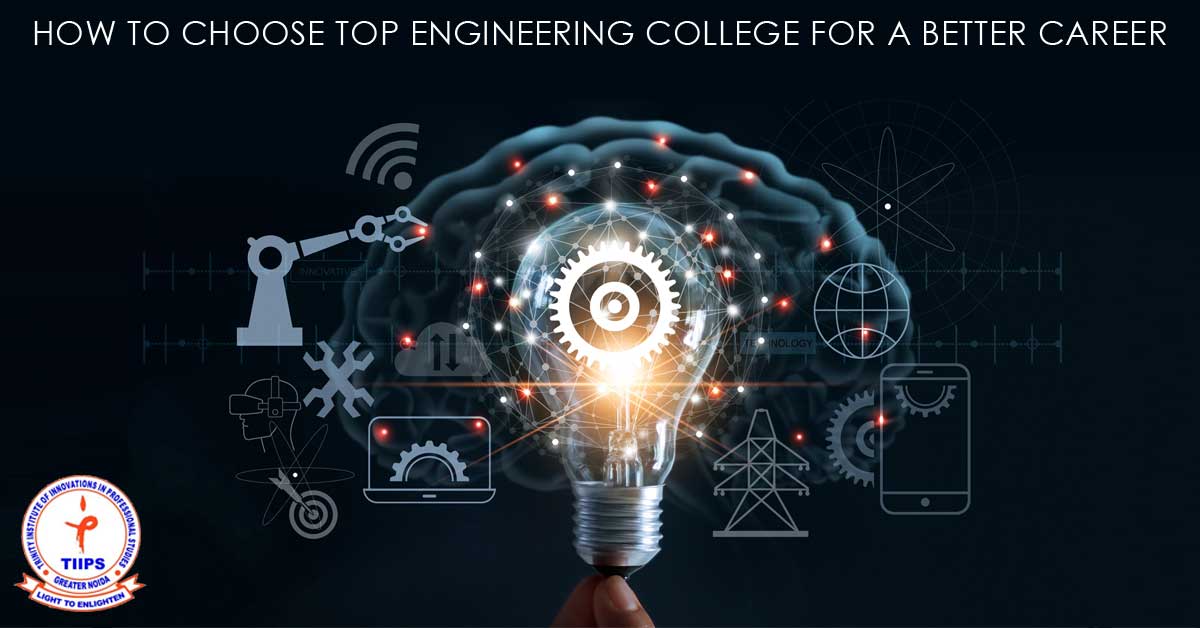- Apply Online
- Admission Helpline: 8929073509/510


In India, graduate education in engineering is among the most popular options. Many private engineering colleges in Delhi NCR have sprung up due to the rise of private engineering education. Aspirants to the engineering profession face an uphill battle when trying to narrow down their choices of engineering schools.
Let's take a glance at the most important factors to consider while looking for a B.Tech college Greater Noida; by using these factors, you can evaluate any institution's educational capabilities and key performance metrics.
Which branch of engineering is the most suitable for you to pursue: Engineers need to be up to speed on the latest developments in their field. A person who is required to do something for the most of their career has to be passionate about the subject. To make matters worse, choosing an engineering field that doesn't interest you might lead to a lack of concentration and, in the end, a lack of employment as a result of your lack of experience and education. Be sure to evaluate your strengths and weaknesses, compare the various engineering specialities, and then seriously consider applying to the one that most closely matches your qualifications. Avoid picking an engineering specialisation based on a rumoured package someone else received because their skills and interests may differ from yours. If you're interested in B.Tech in Delhi NCR and want to take further courses in artificial intelligence to improve your long-term job chances, you should do your research on the many sub-specialisations available within that field.
Educational Infrastructure: Any engineering school needs to have enough educational infrastructure, such as laboratories, a library, classrooms that are well equipped, etc. Every branch of engineering (or at least the one you're interested in) needs well-equipped labs and a comprehensive library, which should give colleges offering courses in computer science, electronics, civil engineering, and data science an advantage. Students should verify that the institution offers the resources they need to pursue their chosen engineering field.
Faculties: Engineering graduates at the university level are student-centred and faculty-driven. Engineering students can learn a great deal if they have the right professors. A diversified faculty makes more educational knowledge and more versatility in teaching possible. As a result, students are more likely to open up about their concerns if professors are empathetic and supportive. Finding information about a college's faculty is important since professors are a key determinant of a school's academic standing.
Job Opportunity Assistance by Engineering Institute: As students spend four years and a vast amount of money on an engineering degree, they expect advice and support from their institution. It has to do with a student's ability to get a job they like and find fulfilling. During the interview/selection process, students' performance is very important for being hired, but institutions may help by providing training on how to perform well. It's simple to assess this metric since institutions often trumpet placements as a sign of their success. On the other hand, student testimony serves as a real test for the boundaries of a course's placement. Up to 85 Lakh INR per year has been obtained for students at the premier college of technology by renowned world-class companies.
Life at institute: An engineering student devotes four years of their life to getting a degree. Students' personalities are shaped by their experiences outside of the classroom. Celebrity visits are a regular occurrence at prestigious universities like TIIPS (Trinity Institute of Innovations in Professional Studies), where students are able to study and keep their minds active.
If you're making a choice on where to go to college, you should take into account all aspects of your future job path.









